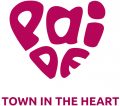Partners in the Circular Based Waste Management project from Lithuania and Estonia returned to Norway for a two-day study tour taking place on 9th and 10th November.
Representatives from Mažeikiai municipality, the Telšiai Regional Waste Management Center and Paide Town Government, visited organisations responsible for recycling organic waste and to learn about different incentivisation solutions and their effectiveness in waste management.
The tour began by visiting Grønn Vekst which from more than 25 facilities throughout Norway they recycle organic resources, mainly from garden waste, stone meal and hygienically treated sludge. The tour included a field trip by Vinterbro where the group saw how the composting site works.

Over 200 thousand tons of composting product are produced annually, which is then sold mostly to construction and landscaping companies. They also offer integrated solutions for managing organic and mineral resources and by-products from municipal enterprises, agriculture and aquaculture industries. Their main focus is to ensure optimal utilization of the resources, and through their solutions, achieve 100% recycling. One example of how they do this, is by combining stone meal with garden waste through a composting product, this then becomes a 100% recycled product in the end and serves the market.
Continuing on, the group met with Bjørn Erik Rui, CEO of the inter-municipal waste operator GREVE in the Vestfold region of the Telemark and Vestfold County, and presented how The Magic Factory (Den Magiske Fabrikken) works.

The Magic Factory is owned by GREVE and takes enhanced energy utilisation and circular symbiosis of resource optimisation to the next level. In the factory itself, food waste is recycled from about 1 million inhabitants, and livestock manure is recycled from 34 farms.
Food waste and livestock manure are recycled into climate-friendly biogas for vehicles, biofertilizer for the production of new food and green, renewable CO2.
The effective collaboration with the agricultural sector has contributed to the plant being given the status of a national pilot plant.
Connected with the industrial facility is also the Knowledge and Experience Centre, a research and educational centre which provides children and young people from Vesar’s owner municipalities with educational experiences.
The youngsters come here to learn about how biofertilizer and CO2 from The Magic Factory contribute to tomato production in the greenhouse, and how it is included in the concept of sustainable development.
They learn about sorting and nutrients in the soil, and perform a photosynthesis experiment, where they can see with their own eyes a plant that produces O2 as a result of photosynthesis. This way, they also gain knowledge about solar energy and experience what happens when the light source changes position. As part of the teaching visit, the students also visit the greenhouse where climate tomatoes are grown, and they end the visit with a sustainable meal. The students are transported to and from Den Magiske Fabrikken with their own bus that runs on climate-friendly biogas from the factory, made from food waste and livestock manure.
For the second day, the group moved to Bergen where they met with the municipality and BIR, the company responsible for waste handling from approximately 356.000 inhabitants in the municipalities owning BIR in the Norwegian West Coast.

The company is one of Norway’s leading waste management companies and carries out waste handling in a modern, environmentally correct and cost-efficient way while using an incentivised waste fee structure mechanism based on the pay as you throw model. BIR combines home collection and delivery arrangements for waste. Households have separate bins or containers at home and various return points and stations are available throughout the municipalities for waste such as glass and metal as well as electric, hazardous, and bulky waste. Emphasis is placed on the importance of sorting waste correctly as home so it can be recycled into new products or energy.
The group’s final destination was Carrot, which provides a software solution that ensures more materials can become circular. This is done by rewarding good sorting based on data about who throws what. Implementing Carrot’s solution in Bergen municipality and a shopping centre has resulted in instant reduced waste and increased recycling – this rate of improvement is what the company calls the Carrot effect.

The solution is used by BIR and it’s key lies in integrating and contextualising data from the waste infrastructure to help people make better decision in how they dispose of waste, while helping waste handlers find the right recipients for each resource. Through seeing the analytics and data on the app, people and organisations are encouraged and incentivised to reduce waste and sort waste better.
More photos from our tour can be found on our facebook page here.









